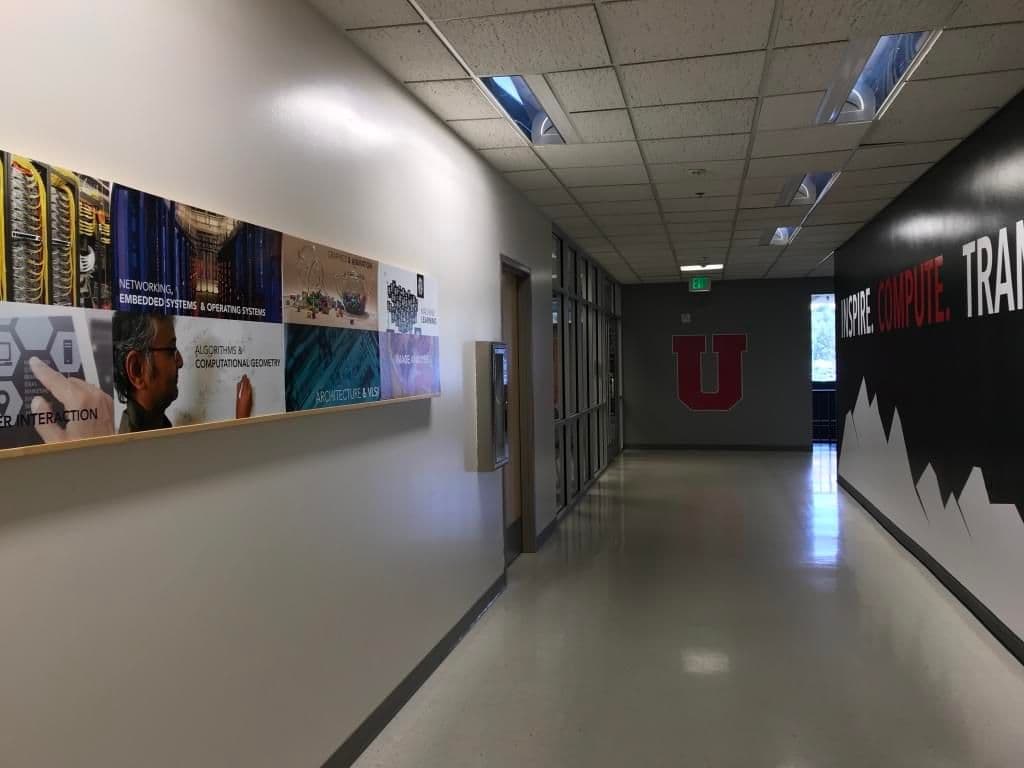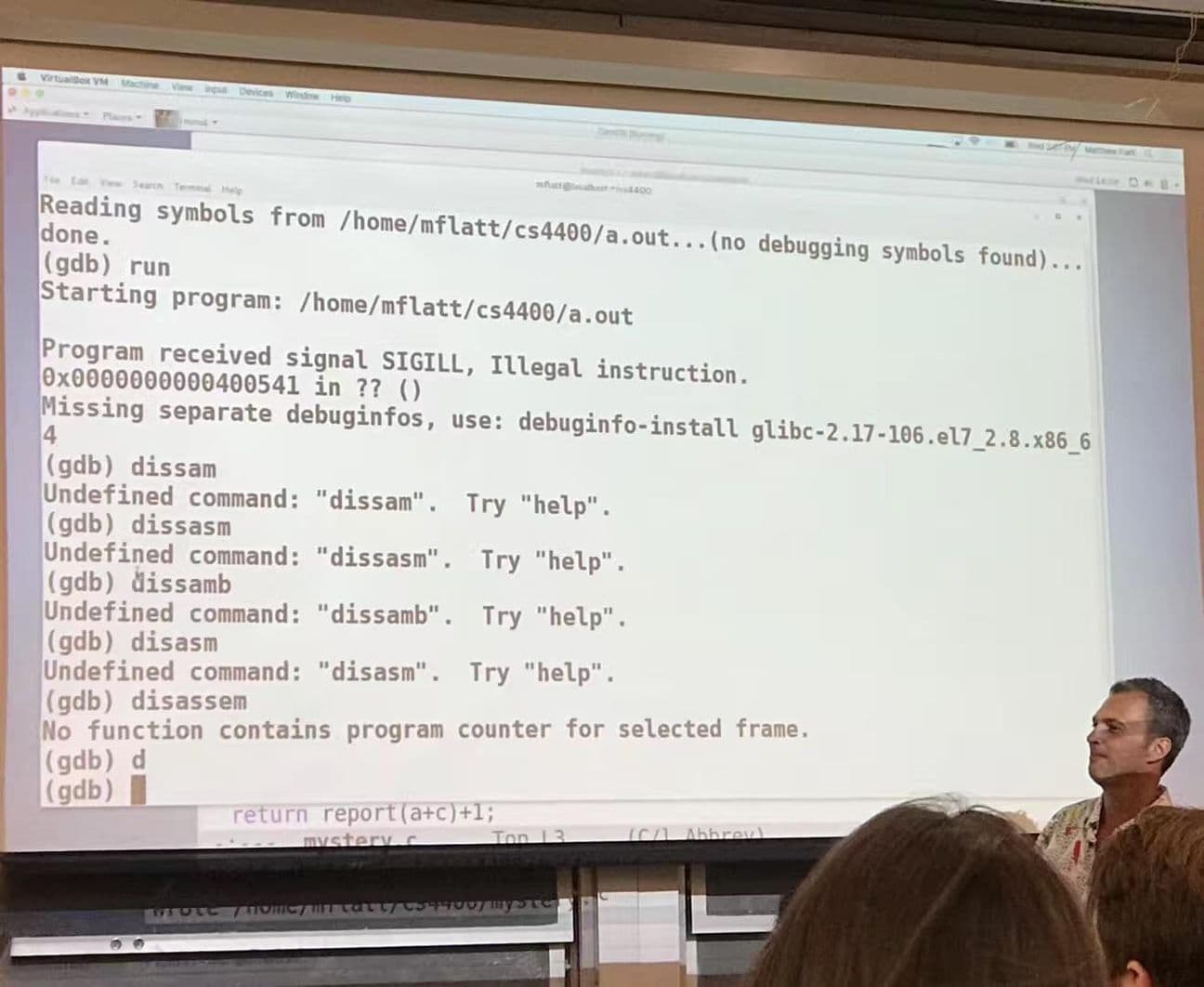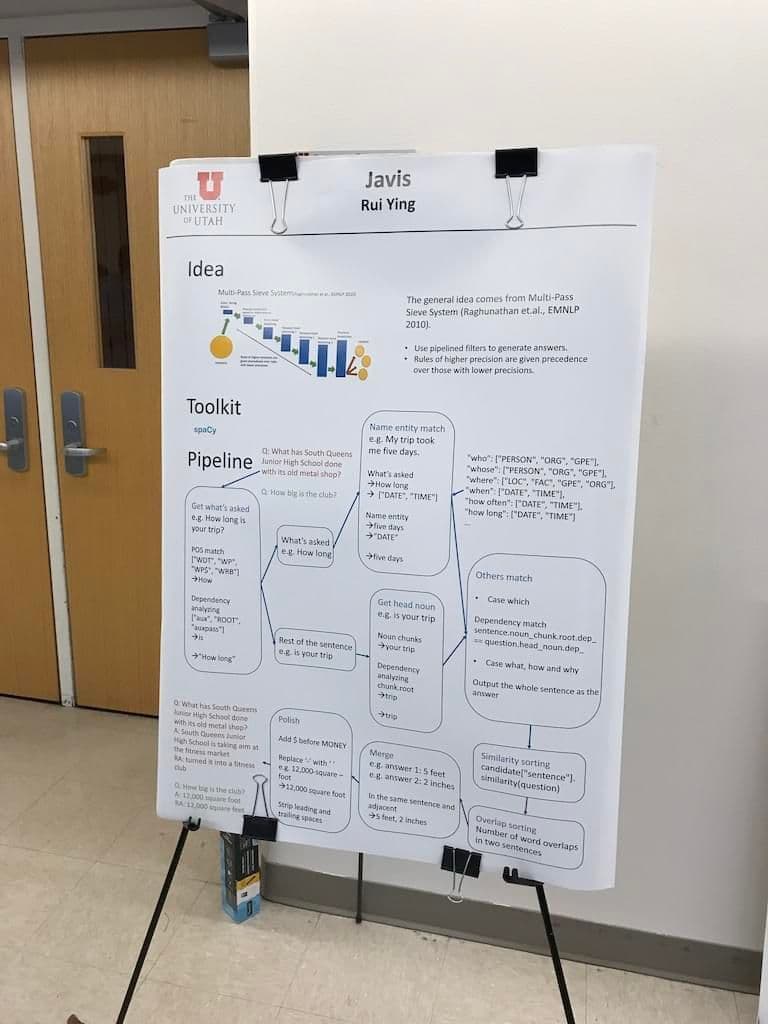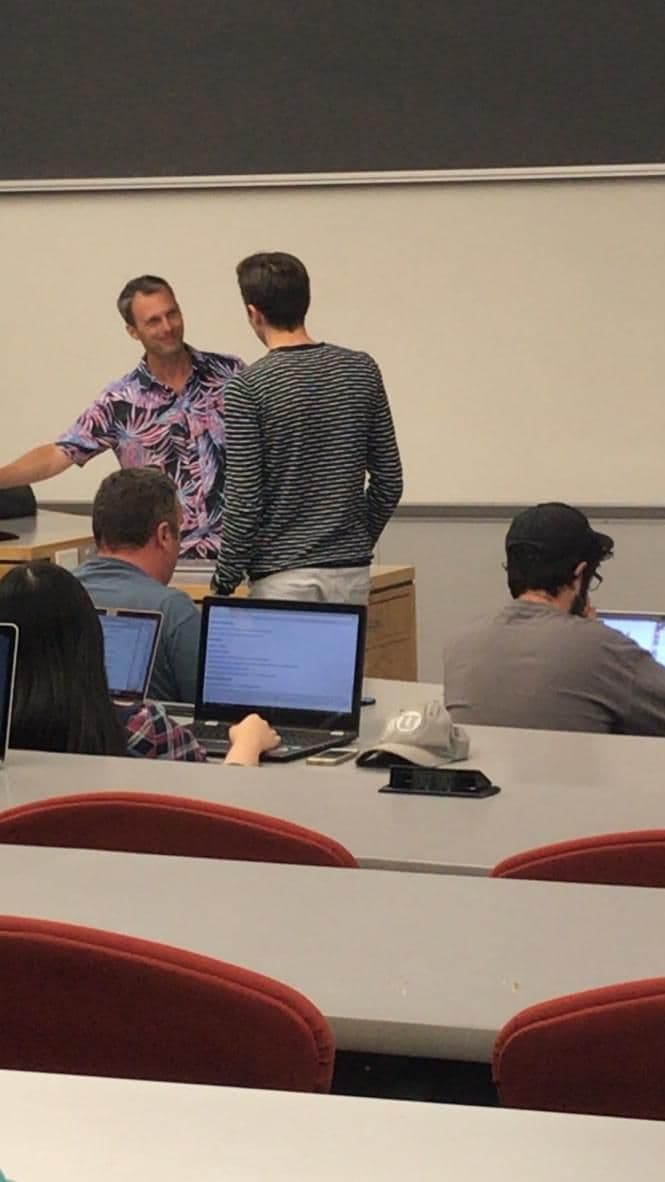Four Months in the U.S. Part II

Overview
Although University of Utah is a public school, the size of a general class wouldn't exceed around 100. We have an almost 300 seat classroom in Tsinghua University. I believe 100 would be the most appropriate--you have enough freedom and privacy, and are accessible to teachers.
Courses are labeled by department abbreviations and numbers. Bigger numbers means more difficulty. It's very convenient and helpful to be able to spot and differentiate between courses when registering. For example, you can guess CS 1100 would be an introduction course for Computer Science freshmen, while CS 6520 seems to be a graduate course which may require some prerequisites and have more challenges.
Students in one course come from different years of study. This is quite a common phenomenon, which you barely see in Chinese universities where most of the courses are already planned to meet certain prerequisites. What surprised me most was there were many students who were already a mother of children or with a husband. It was really amazing to see people who should already graduate by now returned to study further, in the midst of bitter and sweet life.
Course organization
Most of the courses in UofU are taught in class and homework is published afterwards. Two of my courses this semester, however, are in the form of learning by videos, practicing in class and consolidating via homework, which is similar to MOOC. The interesting thing is I used to see this form only in liberal arts courses in China, but not something that works for engineering courses.
We can learn on YouTube from those videos shot by the professor. They are almost everything you need to master in courses. So in class, the professor just gave more examples and some tasks for volunteer students to try out. We would get all the scripts and files generated in the process after class, which was very useful for final reviews. For computer science courses, we did not ususaly get small quizzes. Instead, there were a certain number of homework that required a lot of time and energy to complete. This was very challenging, since you sometimes had to work on multiple from different courses in the same time.

Professors
There may not seem to be many differences between professors in China and the States. Probably because of the smaller size of class, professors can have better connections with students. Professors give lectures and ask if anyone has questions. That's it!
Exams
One particular thing about exams I had in UofU is that professors always gave out a sample exam, whether it was something new with the same setting of coming exams or was a copy of last year's exam. This is really helpful for students to get a hold of what's coming. They also don't have the need to crave for previous exams, since they are already presented by professors, which means you always share the information equality with fellow students.
Students
I don't know if this is common in all American universities or just in UofU, students seem to have worse mathematic ability compared with Chinese students of the same age. But this is also something I hear about often in China, so I was not so surprised to see that students raised hands for very simple questions related to maths or plain concepts. On second thought, I think that having the courage to raise questions in class can be accounted for the situation. You cannot know how many Chinese students may have stupid questions if they all are unwilling to talk it out aloud.
On the other hand, I also found some students who were active in class to be very smart--they always follow teachers' lectures and often point out what teachers have said wrongly.
Students also tend to solve questions in class, instead of asking questions in private with teachers after class. I've seen the latter a lot. It may have something with shyness or selfishness that they don't really want others know about the answers.
Moments
Fun
On one Computer Systems class, there was a demo to use a specific command. But see what happened when all the class were trying to figure out the correct spelling.

First poster
This was my first poster for Natural Language course! It was nice to have this kind of experience.

Favorite professor
Hope Matthew wouldn't mind my taking this picture, would he? 🙃

